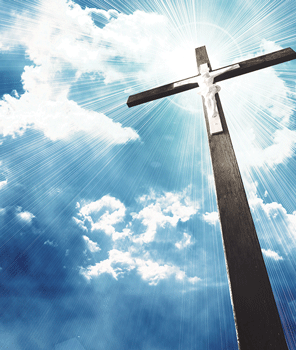 Easter is the most significant date on the calendar for Christians across the globe. A celebration of the belief in the resurrection of Jesus Christ, Easter serves as the foundation of the Christian faith. So it’s no surprise that a day as significant as Easter is steeped in such incredible tradition.
Easter is the most significant date on the calendar for Christians across the globe. A celebration of the belief in the resurrection of Jesus Christ, Easter serves as the foundation of the Christian faith. So it’s no surprise that a day as significant as Easter is steeped in such incredible tradition.
Explaining Holy Week
Known as Holy Week, the week preceding Easter begins with Palm Sunday and ends with Holy Saturday, the day preceding Easter Sunday. Holy Week commemorates different events that unfolded over the final days of Jesus Christ’s life.
According to Catholic Online, Palm Sunday celebrates the entry of Jesus Christ into Jerusalem. On the day of Christ’s entry into Jerusalem, residents laid palms before him, which is why palms are distributed to the Christian faithful each year during Palm Sunday Mass. Palms are blessed at Mass, and many Christians turn their palms into crosses upon arriving home. The palms are eventually returned to the church, where they are burned, and the ashes of the palms are then used during the following year’s Ash Wednesday services.
Holy Thursday commemorates the Last Supper, when Jesus celebrated the Passover feast with his disciples. In the story of Jesus Christ, the night of the Last Supper was the same night that Jesus was betrayed by his disciple, Judas.
Good Friday commemorates the trial, punishment and crucifixion of Christ. Though the official presiding over the trial of Jesus, Pontius Pilate, found no evidence of Jesus’ guilt in relation to the charges filed against him, he ultimately agreed to Christ’s crucifixion anyway in an effort to appease the crowd and avoid a riot. As a result, Christ was stripped, flogged and crowned with thorns before being made to carry his cross through the streets to the place where he was ultimately crucified. On Good Friday, the tabernacle inside Catholic churches is left empty to symbolize that Christ is departed.
The final day of Holy Week, Holy Saturday, is a day to remember that Christ descended into hell, where he preached the gospel and opened the way to heaven.
What is the “good news”?
The term “good news” is often used by Christians in reference to their faith. Good news is at the heart of Christianity, and it has both symbolic and literal meaning in reference to the New Testament. According to the online biblical reference Bible Odyssey, “good news” is the literal translation of the Greek word “euangelion.” It also can be interchanged with gospel, which is “good spiel” or “godspel,” which means good news.
New Testament authors offer that the good news means the salvation and liberation from sin and estrangement from God.
The Apostle Paul summarized the gospel, and in turn the good news, in this way: Now, brothers and sisters, I want to remind you of the gospel I preached to you, which you received and on which you have taken your stand. By this gospel you are saved, if you hold firmly to the word I preached to you. Otherwise, you have believed in vain. For what I received I passed on to you as of first importance: that Christ died for our sins according to the Scriptures, that he was buried, that he was raised on the third day according to the Scriptures, and that he appeared to Cephas, and then to the Twelve.
Christians believe Christ’s death symbolizes the ultimate sacrifice and paved the way for Jesus' resurrection. The death and resurrection — proving that there would be life after death for the faithful — became the core tenet of the Christian faith. Everyone who accepts the gospel and has faith in God will receive salvation in the Kingdom of Heaven. Easter highlights the good news in its most potent form.
Easter celebrations in the era of social distancing
Holidays have been celebrated differently since the outbreak of COVID-19. Celebrations and social distancing may be challenging, but it’s possible for people to safely celebrate Easter with their loved ones. Though it might not be the same as attending church services in person together as a family, watching virtual services together can allow families to engage with their faith alongside one another.
An outdoor brunch provides another way for families to gather this Easter without compromising their health.
Host an egg hunt in the backyard. The Easter egg hunt is one tradition that need not be sacrificed during the pandemic. Easter egg hunts traditionally take place outdoors, and children can wear masks like many are already doing when going to school or participating in sports and other extracurricular activities.
Families spending the day with only those in their own households can watch a movie that commemorates their Christian faith. Various films are set around Easter, including the classic “The Greatest Story Ever Told” (1965) starring Max von Sydow and Claude Rains and the more recent “Risen” (2016), which focuses on efforts by a Roman military tribune named Clavius (Joseph Fiennes) who is tasked with investigating what happened to Jesus Christ’s body after the Crucifixion.
Families can embrace some old and new traditions as they celebrate Easter in the era of social distancing.

 How to resolve AdBlock issue?
How to resolve AdBlock issue? 









